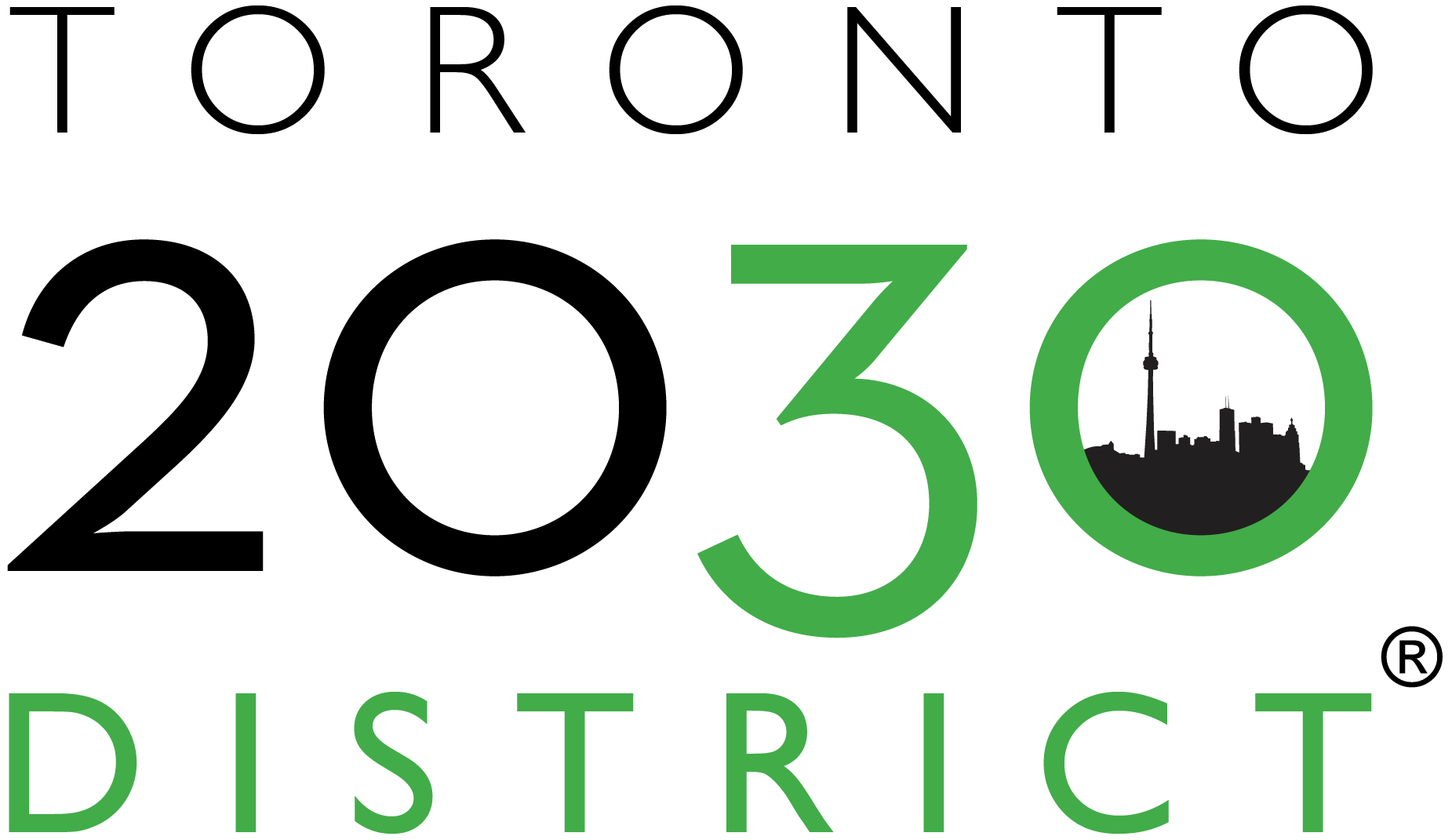The Toronto 2030 District is a private-public initiative committed to achieving a low-carbon future. We are a broad stakeholder network comprised of property owners and managers, tenants, utilities, government, service providers and civil society within downtown Toronto. Our focus is on reducing operational greenhouse gas emissions from buildings.
The Toronto 2030 District encompasses over 300 million square feet of office, commercial, residential, institutional, and industrial space. The District aims to accelerate the pace of change by recognizing that different buildings have different solutions and that community infrastructure has a large part to play in getting to the solution.
To achieve this, the District acts as a learning and knowledge sharing resource aimed at identifying the individual and collaborative opportunities for most effective action. It also seeks context-based solutions that help property owners and managers realize a competitive advantage in cost, resilience, and reputation.
The Toronto 2030 District developed the Toronto 2030 Platform in 2019 to help monitor progress towards the decarbonization targets. It displays energy use, water consumption and related transportation emissions data for the District by building type and block. It also provides simplified tools to help users connect to conservation programs, join the District as partners, and share building performance data. The Toronto 2030 Platform was designed to be replicable in communities of all sizes, and with it we will continue to develop new insights into building performance in the Toronto 2030 District.
The Toronto 2030 District is part of a member network of 22 Districts in cities across North America working to achieve the Architecture 2030 Challenge and meet the Paris Climate Agreement targets.
Our Pathways Project
The Toronto 2030 District is in the process of developing our Pathways Project which consists of research and engagement activities to define viable pathways to achieving a zero-carbon District by 2050. The outcomes are intended to be an informed stakeholder community that is better able to design their own decarbonization roadmaps and a set of pilot projects that will test leading edge approaches to collaborative solutions and inspire individual action.
- Phase 1 – Completed Pathways to Net Zero Background Working Paper
- Phase 2 – Completed Heating Energy Supply Decarbonization Report (Fuel Switching)
- Phase 3 – Energy Efficiency
- Phase 4 – Integrated Pathways to Decarbonization
- Phase 5 – Toronto 2030 District Summary Report
- Phase 6a – Net-Zero Buildings Pathways Tool Guide and Methodology
- Phase 6b – Net-Zero Buildings Pathways Tool (EXCEL Open-Source Database) Nov 2024 Update
What’s Next
- Engage District Stakeholders and Community of Practice: Working with our advisory board, key stakeholders, and community of practice we will seek to understand key barriers and opportunities for fuel switching within the district. We will also act as a learning hub and help promote policies that will help develop the building electrification market. Stay tuned for upcoming events that explore sector-specific solutions to reaching our climate change targets.
- Develop Pilot Demonstration Projects: Based off of our extensive research we are ready to conduct a series of Fuel Switch First pilot demonstrations projects, electrifying building heat for small commercial buildings within our district. We will work with our partners to identify and implement viable pilot projects to test solutions and educate stakeholders.
- Fuel Switch First Heat Pump Courses: We are developing Fuel Switch First Heat Pump courses for designers/mechanical engineers, building owners, facility managers, and commercial HVAC suppliers in collaboration with Toronto Hydro, ASHARE Toronto, and HRAI.
- Online Resource Library: We will be developing an Online Resource Library with case studies populated with data from our pilots and key stakeholders. The ultimate goal is to ignite the heat pump market and supply chain for small commercial building owners within our district.
Our Goals
- Existing buildings:
- Reduce building-related GHG emissions in alignment with Canada’s national commitments
- New construction:
- Net zero buildings by 2030
Join Our Community
The Toronto 2030 District is working to create high performance, low impact buildings in downtown Toronto through collaboration, better data, and industry leadership.
